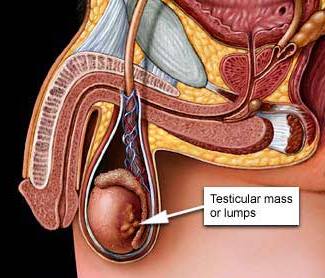Mental health of testicular cancer patients can be improved by Positive attitude
 According to results of a Baylor University pilot study, men with testicular cancer who write positively about their experience show signs of improved mental health afterward, in contrast to men who write negatively or neutrally about their condition.
According to results of a Baylor University pilot study, men with testicular cancer who write positively about their experience show signs of improved mental health afterward, in contrast to men who write negatively or neutrally about their condition.
"There's a lot of research that takes this writing-based approach and in a number of varied contexts, but we applied this line of research to the testicular cancer context for the first time that we are aware of. We think writing about the experience could add to the therapy and can help with recovery and quality-of life issues after treatment, as the men try to get on with their lives," Dr. Mark Morman, associate professor of communication studies and graduate program director at Baylor University, said.
In the study, 48 men were randomly divided into three groups, with one group assigned to write positively about their cancer experience; one group to write negatively; and one to write about innocuous, unrelated topics.
Participants in the positive expression group reported improvements in their mental health as a result of their writing; those in the negative expression and neutral groups did not.
According to the National Cancer Institute, testicular cancer is rare, most often striking men ages 18 to 30, and one of the most curable forms of cancer if detected early.
Morman, a former communication consultant for the Lance Armstrong Foundation said, "There are issues of masculinity, sexuality, relationships and self-image that often have significant effects on a survivor's ability to cope and move forward." (With Inputs from Agencies)